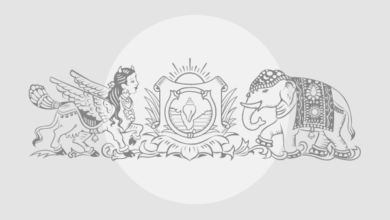PM Modi accuses Nehru of wanting to ‘hide’ Article 35A: What’s the basis of his charge | Political Pulse News
Accusing the Congress of committing the “sin” of denigrating constitutional institutions under the leadership of the Nehru-Gandhi family, while replying to the special debate on the Constitution in the Lok Sabha, Prime Minister Narendra Modi mentioned the insertion of the now-scrapped Article 35A within Article 370 into the Constitution without Parliament’s approval during PM Jawaharlal Nehru’s tenure.
“They had the majority at that time… but still Parliament was kept in the dark. They wanted to hide it from the people,” Modi said during his nearly two-hour-long address,
In the Rajya Sabha on Tuesday, Union Home Minister Amit Shah too criticised the manner in which Article 35A was introduced, saying the Congress at the time viewed “the Constitution as personal property, much like how they viewed their party as a family-owned entity”.
Introduced in 1954, Article 35A gave the Jammu and Kashmir legislature the power to determine who was a “permanent resident” of the erstwhile state and grant them special rights — and sprang from the constitutional history of J&K.
In the aftermath of Independence, princely states across the subcontinent were given a choice: remain independent, join the Dominion of India, or join the Dominion of Pakistan. Joining India and Pakistan was effected by signing an ‘Instrument of Accession’ (IoA) that would include the terms of joining.
Though Raja Hari Singh, the ruler of J&K, initially hoped to remain independent, a combination of factors, including popular opinion and an invasion by armed tribesmen supported by Pakistan, led to Singh signing an IoA with the Dominion of India in October 1947. Through this agreement, India’s power to pass legislation concerning the state was limited to the subjects of defence, external affairs and communication. Giving effect to this IoA, the drafting committee of the Constituent Assembly inserted Draft Article 306A — which eventually became Article 370 — in the draft version of the Constitution.
Parliament typically has the power to enact laws on any subject under the Union or Concurrent Lists under the Constitution. Article 370(1) however, restricted Parliament’s law-making power to subjects under these lists which “in consultation with the government of the state, are declared by the President to correspond to matters specified in the Instrument of Accession” or “such other matters in the said Lists as, with the concurrence of the government of the state, the President may by order specify”. In any place where the “concurrence” of the state government was required under Article 370(1), the Constituent Assembly of J&K — responsible for framing its own Constitution in 1956 — must give its agreement under Article 370(2). A recommendation from the Assembly was also made necessary for the President to “declare that this Article shall cease to be operative” under Article 370(3).
When the draft article was debated in October 1949, Constituent Assembly and All-India Muslim League member Hasrat Mohani remarked, “Why this discrimination, please?”, referring to the special status given to J&K in comparison to other princely states. In response, drafting committee member N Goppalaswami Ayyangar said that conditions in the state were still “unusual and abnormal”, that “part of the state is still in the hands of rebels and enemies” and was not “ripe for this kind of integration”. The draft article was passed and Article 370 as we know it was included in the Constitution.
In 1952, the Union and J&K governments finalised the Delhi Agreement to “endorse the main decisions of the Constituent Assembly of the state of J&K”. Among other things, the agreement ensured that persons domiciled in the state would be citizens of India, but that the state legislature would be empowered to “make laws for conferring special rights and privileges on the ‘state subjects’”. This can be traced back to the “Hereditary State Subject Order of 1927”, introduced by Raja Hari Singh following agitations by the Kashmiri Pandit community demanding that land ownership and public employment be restricted to “state subjects”.
Using the power under Article 370(1), President Rajendra Prasad issued The Constitution (Application to Jammu and Kashmir) Order, 1954, implementing the 1952 agreement. The order was passed with the concurrence of the J&K Constituent Assembly — which was mandatory under Article 370 — but without being debated in Parliament. It cemented the special status of the former princely state by introducing a series of clauses and new provisions altogether, dictating how the Constitution would apply to J&K.
The order inserted Article 35A in the Constitution, which acted as a successor to the “state subject” law, allowing the J&K legislature to pass laws defining who would be a “permanent resident” of the state and provide “special rights and privileges” or impose restrictions on “other persons” in matters relating to public employment, acquiring property, “settlement” in the state and rights to scholarship and aid from the state government. As a 2019 article in The Indian Express by constitutional law expert Faizan Mustafa put it, “Article 35A is unique in the sense that it does not appear in the main body of the Constitution — Article 35 is immediately followed by Article 36 — but comes up in Appendix I.”
This insertion was challenged decades later in 2014 for effectively allowing the Centre to amend the Constitution even though this power solely lies in the hands of Parliament under Article 368.
The article remained in place until President Ram Nath Kovind imposed President’s Rule on the state in 2018 after the collapse of the People’s Democratic Party-BJP government, placing the state under the control of Parliament and the Centre. Kovind then issued another order in 2019 replacing all references to the “Constituent Assembly” in Article 370 with “Legislative Assembly” — making all presidential orders under the article subject to concurrence from Parliament, which has assumed the role of the state Assembly after the imposition of President’s Rule.
Subsequently, both houses of Parliament passed resolutions for the abrogation of Article 370 and enacted the Jammu and Kashmir Reorganisation Act, 2019, putting the special status of J&K and all the laws passed in support of it — including Article 35A — to rest.
Why should you buy our Subscription?
You want to be the smartest in the room.
You want access to our award-winning journalism.
You don’t want to be misled and misinformed.
Choose your subscription package





